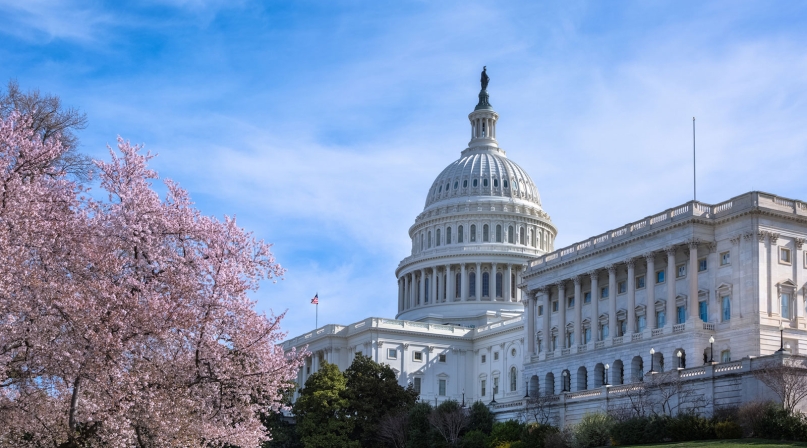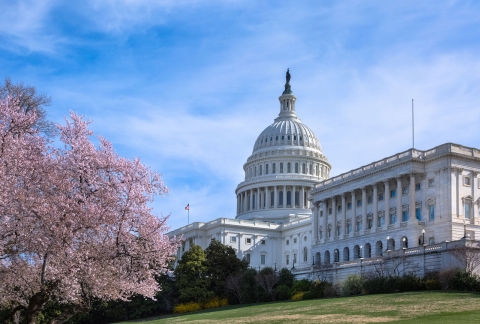NACo urges Congress to include county priorities in COVID-19 legislative response
Author
Upcoming Events
Related News

Key Takeaways
On March 17, NACo sent a letter to U.S. House and U.S. Senate leadership urging the inclusion of key county priorities in legislative proposals to address the COVID-19 pandemic.
Congress is expected to consider a third legislative response package to stem the pandemic’s impact on the nation’s health care system and economy, following approval of an initial $8.3 billion emergency aid package earlier this March (H.R. 6074) and a second comprehensive response package (H.R. 6201). These proposals – the Families First Coronavirus Response Act (H.R. 6201) and the Coronavirus Preparedness and Response Supplemental Appropriations Act (H.R. 6074) – contain significant federal investments and program flexibility to enhance counties’ ability to protect residents from the spread of COVID-19 and mitigate the pandemic’s impact on our communities.
NACo’s letter, which can be viewed at this link, urged the inclusion of a comprehensive set of provisions that would enhance counties’ response to this emergency. Recommendations outlined in the letter include:
- Deployment of testing equipment;
- Access to and distribution of personal protective equipment for essential county service providers;
- Clarification on FEMA resources and additional funding;
- Maintenance of robust behavioral and mental health services;
- Strengthen the local health care safety-net;
- Medicaid Fiscal Accountability Regulation (MFAR) moratorium;
- Emergency funding for publicly-funded child care, Head Start and Early Head Start;
- Provide greater certainty for the Temporary Assistance for Needy Families (TANF) program;
- Restore advance refunding bonds;
- Increase access to capital for small borrowers;
- Clarify tax credits for paid sick and paid family and medical leave for county employers;
- Mandatory funding for Payments In-Lieu of Taxes (PILT);
- Expand use of Secure Rural Schools (SRS);
- Preserve local emergency communications networks;
- Increase broadband access;
- Funding and flexibility for elections;
- Funding for critical housing programs;
- Return solvency to the Highway Trust Fund (HTF);
- Authorize and appropriate funding for the Public Transportation Emergency Relief (PTER) Program (49 U.S.C. 5324);
- Uncap the Passenger Facility Charge (PFC) and index it to inflation;
- Allow flexibility in hiring;
- Fully fund programs that support local airports; and
- Increase the local share of the Surface Transportation Block Grant Program (STBGP).
For more NACo resources on the coronavirus, please see the following links:
- Coronavirus Disease 2019 (COVID-19): County Response Efforts & Priorities (NACo landing page)
- Federal COVID-19 Response Highlights for Counties (NACo legislative analysis)
- Letter to Congressional Leadership on Continued Coronavirus Response (NACo letter, March 17, 2020)
- Letter to Congressional Leadership on Coronavirus Pandemic (NACo letter, March 13, 2020)

Attachments
Related News

HHS Secretary Kennedy touts fixes for obesity, chronic illness, mental health issues
Counties can help improve health outcomes by prioritizing prevention over treatment, Robert F. Kennedy Jr., secretary of the U.S. Department of Health and Human Services told NACo Legislative Conference attendees.

Drug tracking software helps counties identify trends, save lives
Florida counties are using an artificial intelligence tool called Drug TRAC to track and report drug trends, with the aim of providing quicker outreach and saving lives.

White House Executive Order establishes national substance use disorder response
On January 29, the White House issued an Executive Order (EO) establishing the Great American Recovery Initiative, a new federal effort aimed at coordinating a national response to substance use disorder (SUD).
